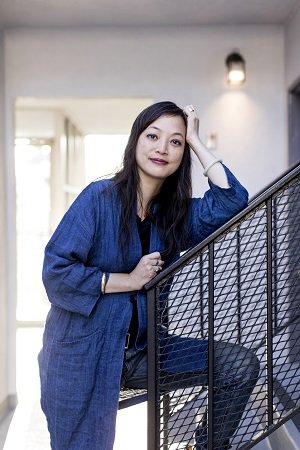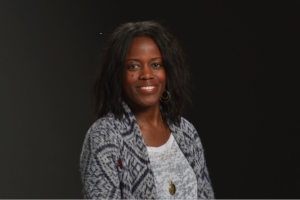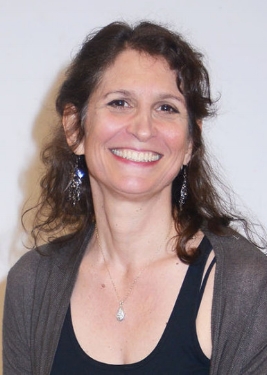Where do ideas for plays come from? How do you develop a play? How is an EST/Sloan play different?
PLAYWRIGHTS! JOIN US ON TUESDAY, OCTOBER 29, 2024 AT 8:00 PM ON ZOOM FOR THE 2024 EST/SLOAN ARTIST CULTIVATION VIRTUAL EVENT
The EST/Sloan Artist Cultivation Event is the annual far-ranging and free-wheeling discussion among scientists, science writers, and playwrights about science, storytelling, and what makes plays work. This year’s event will be online and is free for any playwright interested in developing a play about science or technology. Registration is required. Once registered, you will receive the event access link in your confirmation email. You can register here.
WHAT MAKES A PLAY ABOUT SCIENCE GREAT?
“To stimulate artists to create credible and compelling work exploring the worlds of science and technology and to challenge the existing stereotypes of scientists and engineers in the popular imagination.”—this has been the mission of The Ensemble Studio Theatre/Alfred P. Sloan Foundation Science & Technology Project (EST/Sloan Project, for short) for the past 25 years. Over that time the EST/Sloan Project has awarded more than $3 million in grants to some 300 playwrights and theater companies. More than 150 productions of EST/Sloan-developed plays have been mounted nationwide. Commissions range from $5,000 to $10,000.
Applications for this year’s EST/Sloan commissions are currently open and will be accepted through November 15, 2024. You can view previous commission recipients on the EST/Sloan webpage.
Two related events culminate each EST/Sloan season:
1) The First Light Festival is a months-long series of readings and workshops that showcase plays in development, and is currently in progress through December 12.
2) A full mainstage production of at least one work every season. Recent mainstage productions have included Franklinland by Lloyd Suh about William and Ben Franklin and experiments scientific and otherwise (currently running through November 3), Las Borinqueñas (2024) by Nelson Diaz-Marcano about the birth control pill trials in Puerto Rico in the 1950s, Smart (2023) by Mary Elizabeth Hamilton about AI technology and trust, what you are now (2022) by Sam Chanse about memory and trauma, Behind the Sheet (2019) by Charly Evon Simpson about how American gynecology began with experiments on slaves (a NY Times Critic’s Pick), BUMP by Chiara Atik (2018) on pregnancy and childbirth, SPILL (2017) by Leigh Fondakowski on the Deepwater Horizon disaster, Boy (2016) by Anna Ziegler on sexual identity, Please Continue (2016) by Frank Basloe on Stanley Milgram’s obedience experiments, Informed Consent (2015) by Deborah Zoe Laufer on scientific research and Alzheimer’s, Fast Company (2014) by Carla Ching on game theory and confidence games, Isaac’s Eye (2013) by Lucas Hnath on scientific method and rivalry, and Headstrong (2012) by Patrick Link on sports and concussions.
This year's Artist Cultivation Event panelists include:
Sam Chanse’s plays include What you are now (Ensemble Studio Theatre & The Civilians), Disturbance Specialist (The Public Theater & National Asian American Theatre Company’s Out of Time), Trigger (Lark Venturous Fellowship), Fruiting Bodies (Ma-Yi Theater), and Monument, or Four Sisters (A Sloth Play) (Magic Theatre). A resident playwright of New Dramatists, her work has also been developed with Ars Nova (P.S.), Cherry Lane (The Opportunities of Extinction), Playwrights’ Realm (The Other Instinct), New York Stage & Film, Boston Court, the Ojai Playwrights’ Conference, and is published by Kaya Press (Lydia’s Funeral Video) and TCG (The Kilroys List). She is a recipient of a 2024 Bret Adams & Paul Reisch Foundation Vivace Award with collaborators MILCK and AG, and is currently developing a new musical, The Family Album, as a commission of La Jolla Playhouse. Other commissions include EST/Sloan Project, NAATCO, Ars Nova, Workshop Theater, the University of Rochester, and the San Francisco Arts Commission. A former fellow of MacDowell, the Lark Venturous Theater Fund, Cherry Lane, Sundance Theatre Institute, and Playwrights Realm, she is a member of Dramatists Guild and WGAW, and wrote on three seasons of ABC’s The Good Doctor. Proud alum: Ars Nova’s Play Group, Civilians R&D Group, and the Ma-Yi Writers Lab.
Mandë Holford is a Professor in Chemistry at Hunter College and CUNY-Graduate Center, with scientific appointments at The American Museum of Natural History and Weill Cornell Medicine. The Holford Laboratory of Chemical and Biological Diversity demonstrates the scientific path from mollusks to medicine - examining how venoms evolved, developed, and function over time, and how we can use this knowledge as a roadmap for discovering and characterizing peptide natural products with therapeutic potential. She is particularly interested in using venoms and venom peptides to study rapidly evolving genes and to develop invertebrate venom gland model systems that can be genetically manipulated to advance discoveries in novel gene regulation, expression, and function. Her work combines scientific research, education and diplomacy to understand the extraordinary marine biodiversity on our planet and transform this knowledge for the benefit of human and planetary health. She is cofounder of Killer Snails, LLC, an award winning EdTech company that uses tabletop, digital, and XR games as a conduit to advance scientific learning in K-12 classrooms.
Latif Nasser is co-host of the award-winning WNYC Studios show Radiolab, where he has reported stories on everything from snowflake photography to medieval robots to a polar bear who liked to have sex with grizzly bears. He also hosted the award-winning miniseries The Other Latif, about his Moroccan namesake who was Detainee 244 at Guantanamo Bay. In addition to his work in audio, Latif is the host and executive producer of the Netflix science documentary series, Connected. He has also given two TED talks, and written for the Boston Globe Ideas section. He has a PhD from Harvard's History of Science department.
Daniela Schiller is a Professor in the Department of Psychiatry, the Nash Family Department of Neuroscience, and the Friedman Brain Institute at the Icahn School of Medicine at Mount Sinai. Her research is focused on how the brain represents and modifies emotional memories. Schiller got her PhD in Tel Aviv University where she developed a laboratory model for negative symptoms of schizophrenia. She then continued to do a postdoctoral fellowship at New York University where she examined methods for emotional memory modification in the human brain. Schiller joined Mount Sinai in 2010 and has been directing the affective neuroscience laboratory since. Her lab has delineated the neural computations of threat learning, how the brain modifies emotional memories using imagination, and the dynamic tracking of affective states and social relationships. Schiller’s work has been published in numerous scholarly journals, including Nature, Neuron, Nature Neuroscience, and the Proceedings of the National Academy of Sciences. She is a Fulbright Fellow and a Kavli Frontiers of Science Fellow, and has been the recipient of many awards, including the New York Academy of Sciences’ Blavatnik Award, and the Klingenstein-Simons Fellowship Award in the Neurosciences.
Lloyd Suh is the author of The Chinese Lady (Ma-Yi at The Public Theater), Bina's Six Apples (Alliance Theatre and Children's Theatre Company), Charles Francis Chan Jr.'s Exotic Oriental Murder Mystery, The Wong Kids in the Secret of the Space Chupacabra Go!, Franklinland, and more, including The Heart Sellers, (Milwaukee Rep). His play The Far Country (Atlantic Theatre) was a finalist for the 2023 Pulitzer Prize for Drama. His work has been produced at theaters across the country, including Ensemble Studio Theatre, Magic Theatre, National Asian American Theatre Company, Denver Center, ArtsEmerson, Long Wharf and others, and internationally at the Cultural Center of the Philippines and with PCPA at the Guerilla Theatre in Seoul, Korea. Awards include the Guggenheim Fellowship, Herb Alpert Award, Horton Foote Prize, and Helen Merrill Award. He was elected in 2016 to the Dramatists Guild Council. Starting in 2015, he has been a member of the Dramatists Guild Council. He joined The Lark as the Director of Artistic Programs in 2011. From 2005 to 2010 he was the Artistic Director of Second Generation and Co-Director of the Ma-Yi Writers Lab. He is a member of Ensemble Studio Theatre and an alum of Youngblood and the Soho Rep Writer Director Lab.
About the Moderator
Sophie Bushwick is a science and technology journalist based in New York City and is currently working as senior news editor at New Scientist. She has more than a decade of experience as a writer and editor at outlets including Scientific American, Popular Science, Discover Magazine and Gizmodo, and she continues to make regular appearances on Science Friday. Her work spans digital and print, podcasts and radio, TV news and TikTok.


























